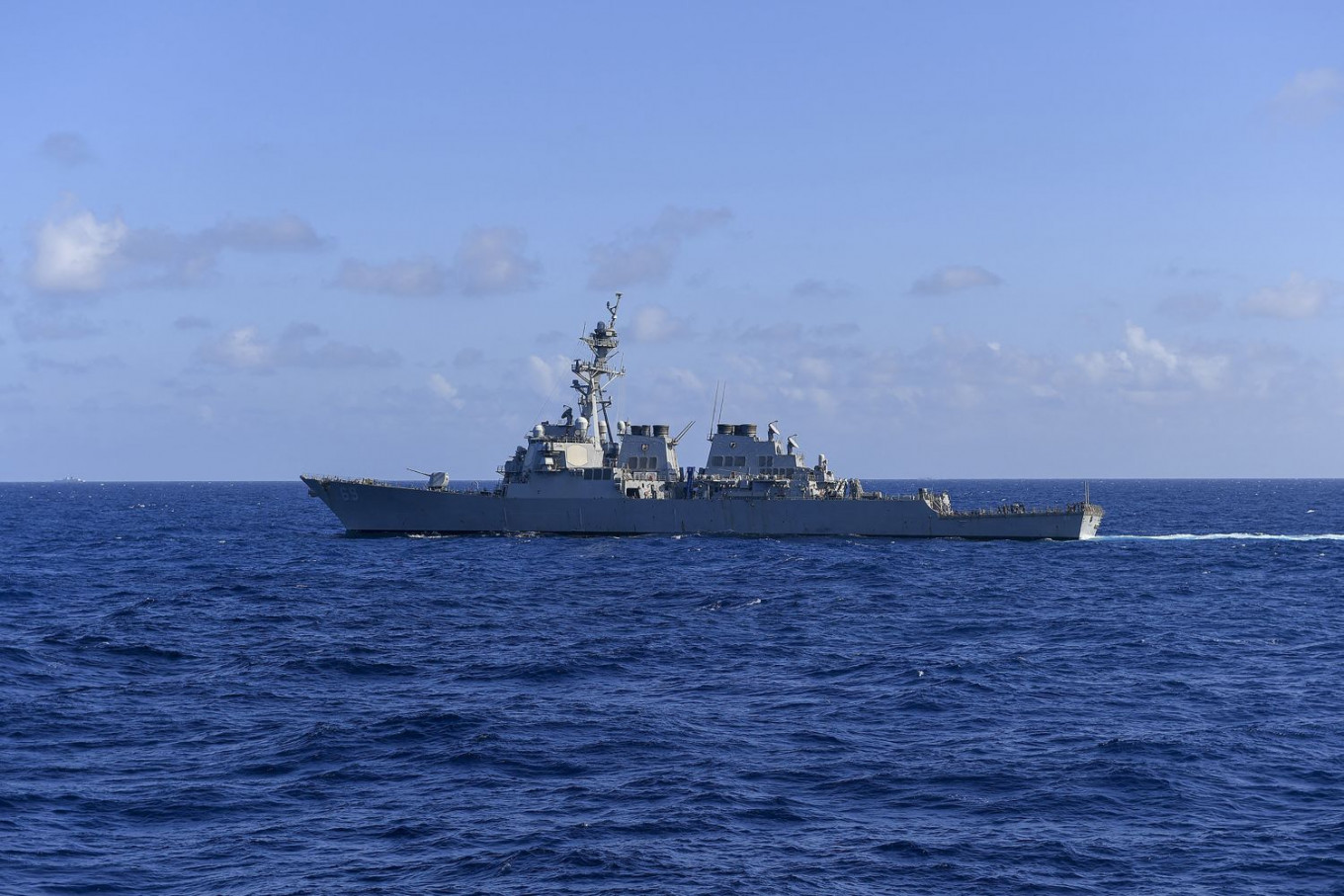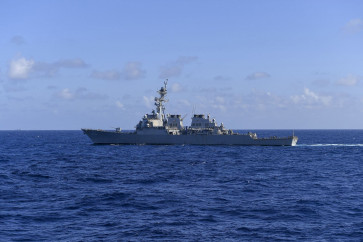Popular Reads
Top Results
Can't find what you're looking for?
View all search resultsPopular Reads
Top Results
Can't find what you're looking for?
View all search resultsPower, politics and peacemakers: ASEAN’s lesson
Geopolitical rivalry now threatens this ideal. Great powers are busy containing each other and forcing the rest of the world to pick sides.
Change text size
Gift Premium Articles
to Anyone
 This handout photo taken on Nov. 20, 2021 shows the United States Navy's Arleigh Burke-class guided-missile destroyer USS Milius (DDG 69) sailing in the South China Sea. China simulated “sealing off“ of Taiwan during a third day of war games around the self-ruled island on April 10, as the US deployed a naval destroyer into Beijing-claimed waters in a show of force. (AFP/US Navy/Omar-Kareem Powell)
This handout photo taken on Nov. 20, 2021 shows the United States Navy's Arleigh Burke-class guided-missile destroyer USS Milius (DDG 69) sailing in the South China Sea. China simulated “sealing off“ of Taiwan during a third day of war games around the self-ruled island on April 10, as the US deployed a naval destroyer into Beijing-claimed waters in a show of force. (AFP/US Navy/Omar-Kareem Powell)
If there is one word that best describes the current state of our world, it would be uncertainty.
Last month, the World Health Organization (WHO) finally declared an end to COVID-19 as a public health emergency of international concern. But the lingering impacts of the pandemic continue to cast a cloud of uncertainty on the global recovery.
The World Bank just warned that two-thirds of developing economies would see lower growth this year compared with 2022. One-third would not even beat their 2019 per capita income levels.
The situation has been equally uncertain on the geopolitical front. The war in Ukraine brought to light a deep trust deficit between countries. Rivalry between great powers intensifies, dividing our world into opposing blocs.
Consequently, international cooperation is failing to address urgent global challenges. Developed and developing countries spend more time trading blame and shifting responsibilities, rather than coordinating their actions.
Multilateral institutions are paralyzed, and turning into sites of political battles between great powers and their allies.
At the same time, international law and a rule-based order have gradually lost their meaning, as countries have become more willing to abandon them in pursuit of narrow self-interest.


















